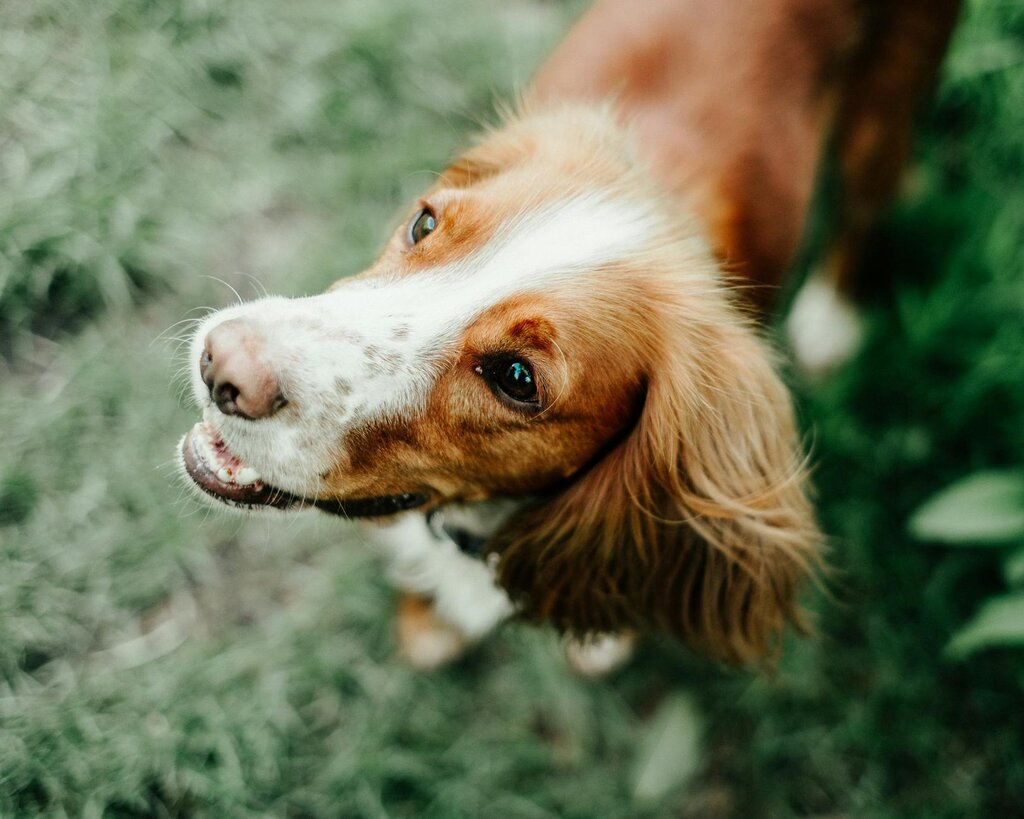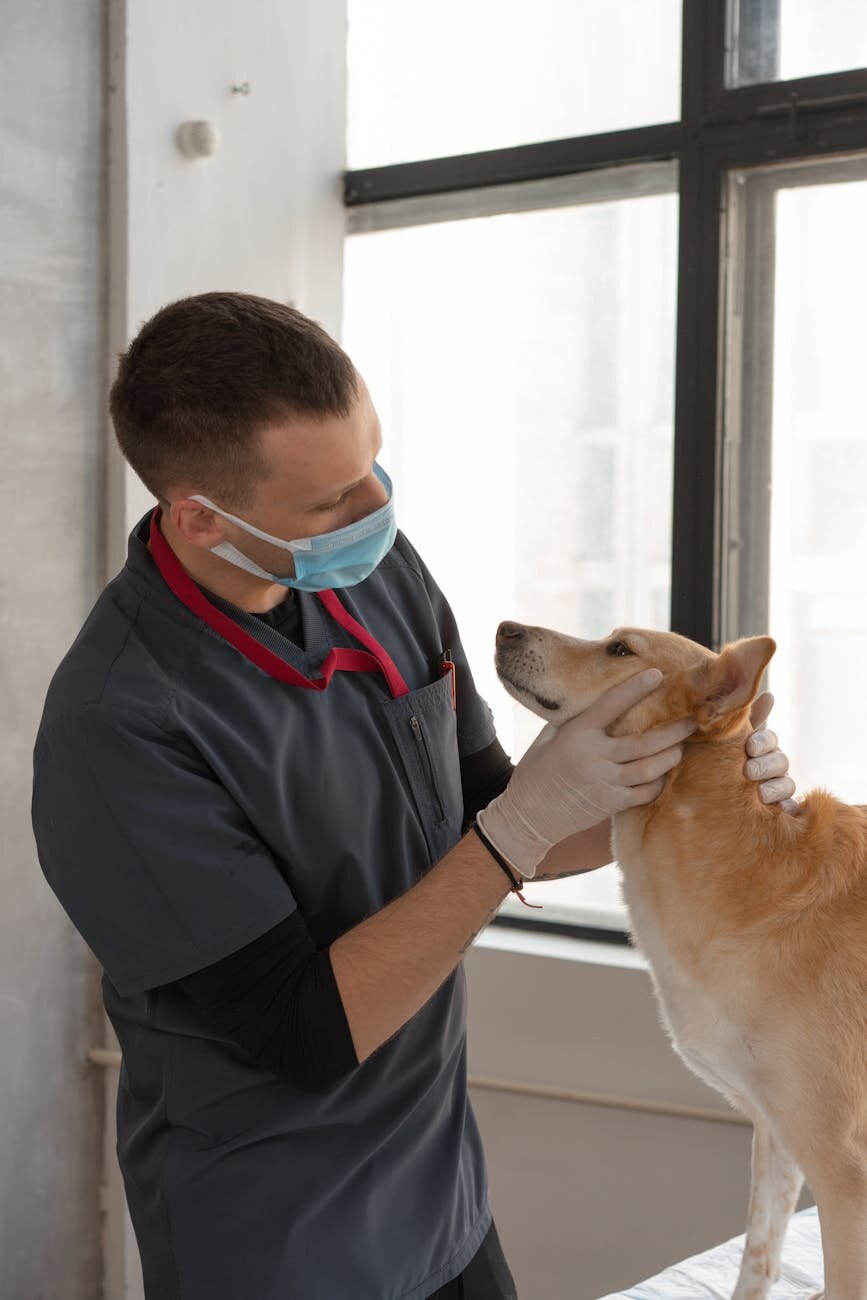Last Updated: 24/11/2025
Essential Oil Safety in Dogs
Considering essential oils for your home? Our guide provides all the answers on their safety and proper use when you have dogs.
Author: Dr Lacey Kelly BVSc (Hons)
Reading Time: 5 minutes - short read
Essential oils have gained considerable popularity in recent years but are they safe to use in your home if you have dogs?
Are essential oils safe?

Essential oils are all the rage right now and their safety for use in animals has become a hot topic. Many health-conscious individuals are switching out chemical laden cleaners and fragranced candles for these safer alternatives. Some even turn to them for medical ailments and as a form of general health support. With recent years bringing health and wellbeing to the forefront of our minds it is no wonder then that many pet parents are wondering if essential oils could also benefit the health of their furry friends. Unfortunately, without governing bodies or set guidelines for use pet owners often find themselves at a loss as to whether or not it is safe to use essential oils for their pets.
What are essential oils?
Essential oils are the highly concentrated organic components of plants that gives them their distinctive fragrance and taste. These components are sourced from basically all parts of the plant; the leaves, roots, seeds, stems etc. There are countless varieties, all with their own unique properties. Despite their natural source it is important to remember that natural does not always mean safe, and a lot of essential oils can cause great illness to your pet.
Risks of using essential oils

So can I use them in my house or not?

Don't panic! There is no need to go throwing all those little glass bottles away. So long as you stick to premium quality oils and follow some safety rules there's no reason why you can't continue to use some essential oils in your home.
Rules to follow:
- Only use diffusers in well ventilated areas and ensure your dog has the ability to leave the area if it becomes too overwhelming for them.
- Limit diffusing to no more than 1hour at a time. An intermittent setting is great too.
- Ensure essential oils are kept well out of reach of your furry friends and are returned there immediately after use.
- Only ever use essential oils that are pure, therapeutic grade.
- Never apply concentrated EOs to your pet.
Essential oils to avoid:
- Camphor
- Cinnamon
- Citrus
- Clove
- Eucalyptus
- Pennyroyal
- Peppermint
- Pine
- Sweet Birch
- Tea Tree (melaleuca)
- Wintergreen
- Ylang Ylang
I would recommend checking out Pet Poison Helpline for further information on essential oils that aren't safe for your pet: Essential Oils and Dogs.
The use of essential oils for health conditions
Some preliminary research has indicated that essential oils may pose some benefit for the health of dogs. However scientific support of their positive impact on health is limited and widely contradictory. There is also yet to be any large body of evidence to support the use of essential oils for medical conditions. If you are interested in using essential oils for your dog's ailments it would be best to talk to a qualified veterinarian who has experience using EO, about potentially using them alongside traditional medicine.
Essential Oil Poisoning

Despite being a natural substance there are unfortunately a large number of essential oil poisonings reported in pets each year. The degree of essential oil poisoning varies with a number of factors such as the specific essential oil your pet is exposed to, the concentration of that oil, and the route of exposure (inhalation, ingestion, topical application etc). Symptoms of essential oil poisoning can range from drooling and gastrointestinal signs like vomiting, through to seizures, comas and organ failure.
Common Symptoms of Essential Oil Poisoning
- Watery eyes or nose
- Redness around the lips, gums or where an essential oil has been applied
- Drooling
- Vomiting
- Difficulty breathing, panting without exertion
- Coughing/wheezing
- Lethargy/weakness
- Difficulty walking/tremors
If you suspect your dog is suffering from essential oil toxicity:
- Take them to somewhere with fresh air, away from the essential oil
- Wash off any oil that may be on their fur
- Contact your regular vet or emergency clinic immediately
- Bring the essential oil product with you to the vet clinic (in a sealed bag)
If you suspect your pet may have been exposed to an essential oil, contact Australian Animal Poisons (1300 TOX PET) or your veterinarian immediately.
Further Reading
Articles recommended for you
Our vet authored guide to the benefits of feeding your dog fresh food plus tips and advice for introducing it into their regular menu.
See our guide to protecting your pet from parasites from our vet team.
Thinking of getting a fish? Check out our guide for setting up a tank and home care tips!
Looking to understand horse feeds better? This comprehensive guide covers feeding recommendations for horses of all ages and disciplines.
Does your pet suffer from anxiety? Check out our Vet-guide for treatment options to help your pet.
History
Our experts continually monitor the health and wellness space and we update our articles when new information becomes available.
Mon Nov 24 2025
Edited by Dr Antonella Virina DVMDr Lacey Kelly BVSc (Hons)
Veterinarian
Dr Lacey graduated from the University of Queensland in 2016 and has worked for a number of years in small animal clinics across South East QLD. Dr Lacey. She holds a special passion for pain management, small animal internal medicine, critical care, and senior support. Her favourite part of being a vet is helping clients make the best evidence-based choices for their pets and forming lasting relationships with pet parents and their fur children.

